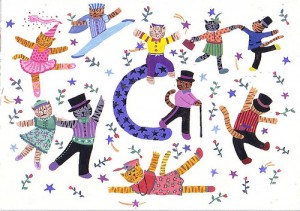Click here to see the photo that inspired this story. The owner disabled sharing. It’s worth going to look at, folks.
Lyla was always the first one to get cold. She wouldn’t run the ceiling fan if the air conditioner was on. She would give in come July and August when temperatures outside peaked in the high 90s or 100s and just put on a long sleeved t-shirt and jeans so I could be comfortable. Lyla never broke a sweat.
We never went to the lake with our friends, either, because she didn’t want to swim. She would tell me that without clothes, meaning wearing a swimsuit, she would be too cold and she wouldn’t enjoy herself.
“What do you mean? How could you be cold with it almost a hundred degrees out there and the sun right on your skin?”
“You don’t understand.”
“You’re right,” I said, raising my voice. “I don’t. Help me understand. Are you ashamed of something?”
That started an argument.
Our fights were epic: near-hysterics, shouted words, slapped faces (mine, anyway; I never hit her), thrown glasses shattered on the kitchen tiles, slammed doors and tires squealed in anger down the driveway. Sooner or later Lyla would text me and tell me to come home. I refused only once in the seven years we’d been together. I was so angry that I stayed at a hotel overnight and the next morning there were forty texts and a dozen voicemails begging me to come home.
The house was 85 degrees when I got there.
Lyla was wrapped in a comforter, shivering. I thought it was because she was cold.
“I was afraid you wouldn’t come back,” she said. “I was afraid I’d lost you forever.”
I put my arms around her, over the comforter and I made soothing noises. It took a while, but she finally let me under the comforter with her and I held her a long, long time while she cried. I sweated like a pig, but she didn’t mind.
I didn’t understand anything about why she was cold.
Neither did her doctors.
It was explained that her core temperature was a hundred and two point nine, four plus degrees hotter than the rest of the human population. “But she’s not feverish,” the doctor would say. “I don’t know why. Her hypothalamus is functioning normally and her blood pressure is fine. Everything is fine.” He would scratch the back of his head or adjust his tie or lean back in his chair, then exhale a long time. “I can’t explain it. For all of me, it looks like you just run hotter than everyone else.”
Which is why she had a passionate hatred of winter, especially ice and snow. “Why can’t we move to a nice tropical island?”
I was pulling up the knot on my tie and checking it in the mirror.
“Because my business doesn’t have an office in Barbados, dear.”
“Couldn’t you telecommute? How hard is it to be a mid-level government functionary from an island?”
I shook my head and closed my eyes. This wasn’t the first time she’d diminished my work. “I’m not a government functionary,” I said. “I’m a recruiter. I develop talent. You know that.”
“Well, they could fly the talent to you,” Lyla said. “I mean, couldn’t they?”
She was serious. I went to her and rubbed my hands slowly up her arms. She was beautiful. The gown was perfect for her figure and she had a faux mink stole to wrap herself in. The white rose in her hair was a perfect accent to the silvery dress. She looked like a movie star on the red carpet. “My darling,” I said in my best Cary Grant voice, “I know you hate these things. I have to be there. My bosses and my team are expecting me and it’s important. It’s important you come, too.”
Lyla acquiesced with a small nod, defeated.
The party was a subdued affair with everyone in their best suits and spectacular gowns. The liquor flowed and the food was delicious. The government knows how to throw a Christmas party. Lyla met everyone she was supposed to, was gracious in the face of compliments and hung on my arm all evening. The hotel had rooms for those too drunk to drive. Lyla insisted we go home. I was tipsy but I could drive. “Take the long way,” she said. “Do you mind?”
I didn’t. The bypass would drop us off on the far west side of town and we could take a country road or two and come back in on the south side. I’d be less likely to run into a saturation checkpoint that way, too.
The sound of gravel bashing the pans and axles was kind of calming and the low hum of the tires on loose rock was something we both liked. Lyla took my hand and her smile was soothing, too. She had that look that said we were going to have sex when we got home and I squeezed her hand and brought it up to kiss it.
All I remember is the whitest light I’ve ever seen. There was no sound, no flash. It was just white light and heat and then darkness.
I came to in the ditch. The car was still on the road, its lights on and the radio playing but the engine was off. I called out for Lyla. No answer. An hour later, I finally gave up and called 911. All I ever found was the white rose that had been in her hair.
It’s been a year. The police and the psych people agree that I had some kind of outre experience but they won’t say UFOs out loud or anything like that. I’ve finally been cleared to work and everyone’s offered their sympathies.
I wish I knew what happened. I wish I knew where Lyla went or if she’s coming back.
The rose sits in a vase on my desk at home, perfect as the night she wore it. It still smells like her.





